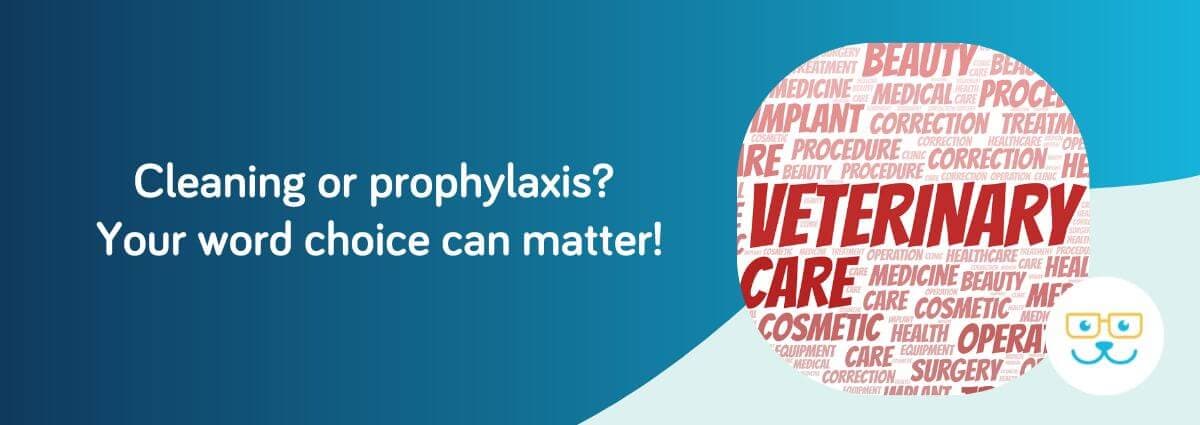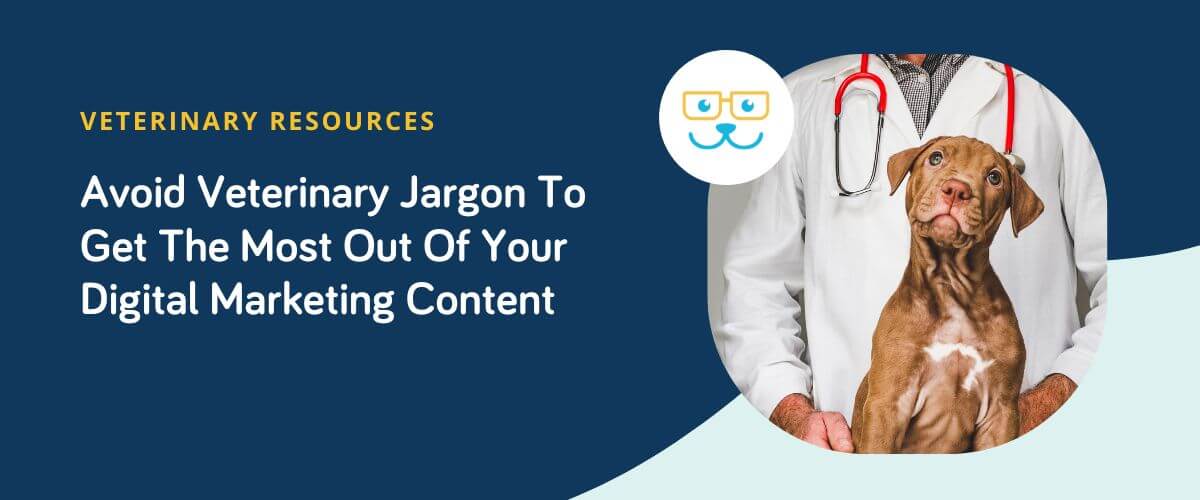Avoid Veterinary Jargon To Get The Most Out Of Your Digital Marketing Content
Clarity in communication is vital to your work as a veterinarian. Whether you're giving discharge instructions to clients or prescription doses to your technicians, choosing just the right words is critical to ensure that you are understood. The health and safety of your patients are your top priorities, and clear communication helps you safeguard those pets.
At a professional level, that clarity relies on you and your staff having a good handle on veterinary jargon. “Jargon” is the set of unique words specific to a profession that is often not understood by those outside of that profession. In your practice, industry jargon often makes the most sense. When speed and efficiency are critical, you’ll ask a technician for one cc of medication rather than one cubic centimeter. When you need to help a client understand a treatment plan, you’ll use the specific term pancreatitis rather than try to discuss a general tummy ache.
Outside of the exam room, in digital marketing, it is important to use language that ensures clarity of your message and conveys your expertise and professionalism. However, it is also important to be accessible and ensure that you are using terminology that your audience will understand. In this article, we will look at some perspectives on jargon and specific examples of how to balance veterinary industry lingo with the everyday language that will make sense to local pet owners. We hope that you and your marketing team can apply these tips to all of your veterinary marketing initiatives.
You’re an Expert...Among Other Experts
You truly are in a position of authority, so you need to pay attention to how you earn and maintain your professional reputation—client compliance and pet health hinge on whether pet owners respect your work and heed your medical recommendations.
Naturally, it would seem that one of the simplest ways to earn respect is to showcase your knowledge in all client communications. The use of medical jargon during appointments may be perfectly reasonable because, during face-to-face communication, if a word you use isn’t understood by the person you are speaking with, that confusion will often be evident by their expression or the follow-up questions they ask. During an office visit, you have that opportunity to take a second chance at explaining something if it wasn’t clear enough the first time. However, in your marketing efforts, including blog posts, client handouts, social marketing posts, and website content, you won’t have that opportunity to get a feel for how well the client understands what you’ve said. So, it is vitally important that you find ways to simplify your language to ensure the person reading it is getting the message.
This isn’t because your clients lack intelligence. After all, your clients are realtors, lawyers, auto mechanics, HVAC technicians, accountants... They are experts in their fields! However, they are not veterinary experts, and they already believe that you are.

Consider this: you are intelligent, analytical, and industrious, but it’s highly likely that you would not be comfortable replacing your own car’s transmission, representing yourself in a court of law, or completing your practice’s taxes. You seek experts, and you expect those experts to help you understand these processes in layman’s terms. It’s not surprising, then, that your clients expect plain, straightforward explanations from you, too!
“Prophylaxis,” or How to Make “Cleaning” a Dirty Word
One of the most significant veterinary marketing and client education jargon traps is also one of the biggest client compliance frustrations: pet dental health. Whether it’s every February during Dental Month or a year-round practice initiative, veterinary professionals often tout the importance of or advertise discounts on the “dental prophylaxis.” Yes, precision is vital, particularly in a promotion, and you may want to specify that discounts only apply to that prophy (not to an add-on mass removal or heartworm test). But in your attempts to be medically precise, clients may not understand what you mean. They may not even realize that they regularly visit their own dental offices for this service. They know they see their hygienist for a cleaning. Therefore, if you simply say “professional cleaning,” they’ll be more likely to understand both the healthcare service itself and whatever the discount applies to.

A Picture is Worth a Thousand “Radiographs”
Another, perhaps less obvious, instance of jargon use is “digital imagery” or “radiography.” Today, pet owners know the term “digital,” but imagery could mean anything, from book illustrations to Instagram photos to their own daydreams about their next vacation spot! Plus, while radiography and radiology are words they may have heard from their own doctors or in movies and television shows, they may only have vague notions of what that entails. Save yourself the frustration and save them the confusion; go ahead and use more familiar terms like “x-ray” in social marketing.
Use Language that Attracts and Keeps Attention
For wordier content blocks, such as blogs and website content, it can be helpful first to use the jargon term and then define it for pet owners. This helps provide that inside scoop component of client education. But for shorter tweets, Facebook posts, and Instagram captions, you may lose the pet owner's attention if you include jargon. They’re already primed to keep scrolling until they find what interests them. And every time you lose a set of eyes, you lose the opportunity to educate, attract a new client, or inspire an appointment.

Match Your Language to Online Searches
Finally, don’t forget the importance of word choice for Search Engine Optimization. When pet owners look online for pet care information, they type their own words into those search engines. That means “cat teeth cleaning,” “tick bites,” and “dog knee surgery” instead of “prophylaxis,” “vector-borne disease,” and “TPLO.” If your content includes the words that clients are actually typing into a search engine, the search engine will believe that your page is a great match, and it will be more likely to show your page in the search results. Search engines are by far the #1 way that local pet owners will find your site, so making an effort to align the terminology on your page with the language they use when searching is one of the most important things you can do to attract more visits.
If pet owners can’t find you because you aren’t speaking the same language, you’ve lost the ability to turn them into clients. Share your expertise in professional yet common terms -- for the good of your practice and the good of the animals you treat.
Want to speak to us about how to connect with clients, retain employees, and improve your profitability? Schedule a GeniusVets demo!

